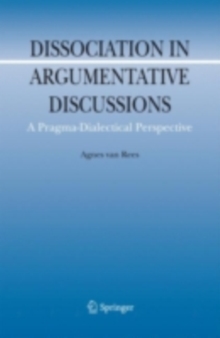
Character Evidence : An Abductive Theory PDF
by Douglas Walton
Part of the Argumentation Library series
Description
The theory in the book is based on the latest research in argumentation theory, and especially on new applications of artificial intelligence (AI) to legal argumentation.
The methodology of the book derives from recent work in argumentation theory and AI in which forms of reasoning other than deductive and inductive have been the focus of much investigation.
The aim is not just to show how character judgments are made, but to show how they should properly be made based on sound reasoning, in order to avoid certain fallacies, errors and superficial judgments of a kind that are common.
The book is about character judgments, but centrally about the kind of logical reasoning and evidence that should properly be used to support or question such judgments.
According to the new theory put forward in this book, such evidence is based on a kind of multi-agent simulative reasoning in which one agent is able to explain the actions of another by understanding the situation confronted by the other,and recreating the plan adopted by the other.
According to the theory, one agent can reach reasoned conclusions about the presumed character properties of another, using plan recognition and ar- mentation schemes representing stereotypical forms of reasoning.
We use character evidence every day in reasoning, as in the inference, "He has a certain character trait, so that is evidence he is the one who carried out this particular action".
Information
-
Download - Immediately Available
- Format:PDF
- Publisher:Springer Netherlands
- Publication Date:10/11/2006
- Category:
- ISBN:9781402049439
Other Formats
- Hardback from £95.55
- Paperback / softback from £95.55
Information
-
Download - Immediately Available
- Format:PDF
- Publisher:Springer Netherlands
- Publication Date:10/11/2006
- Category:
- ISBN:9781402049439










